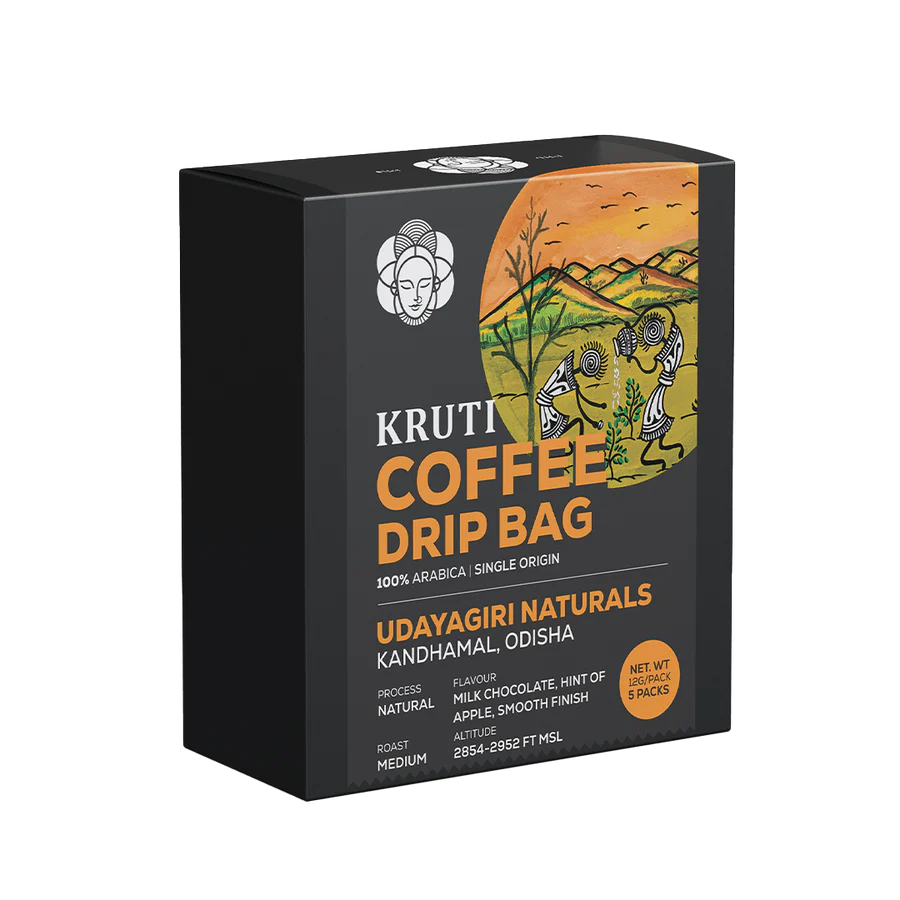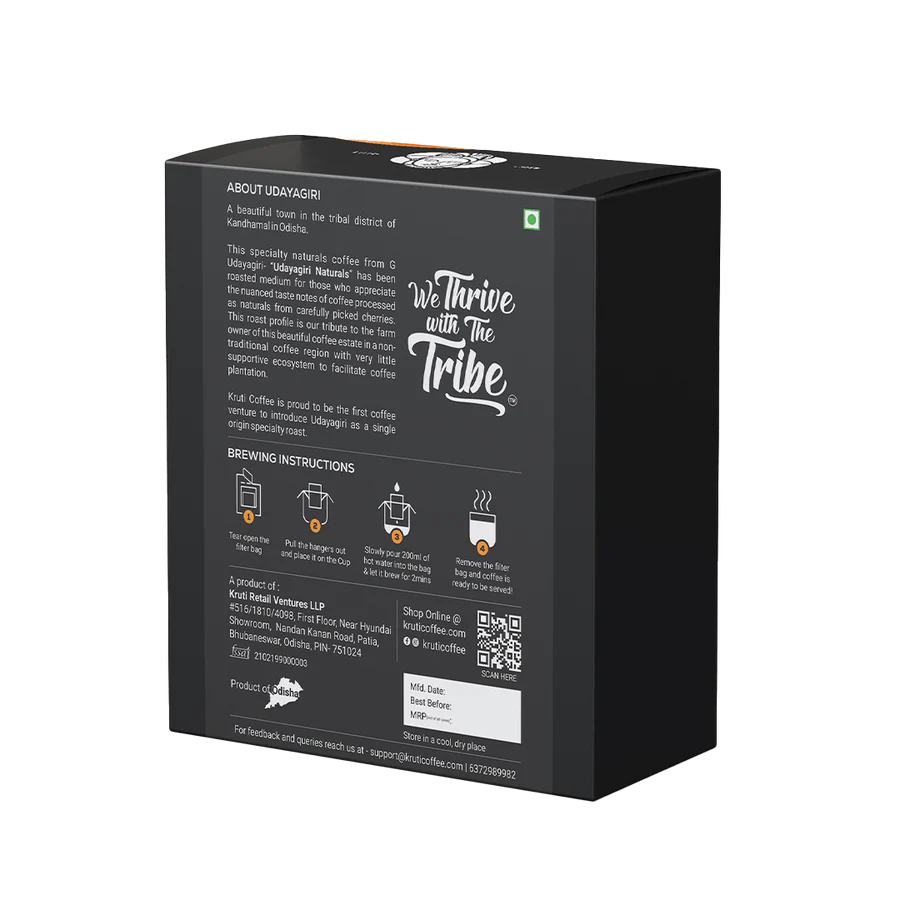Kruti Coffee – Udaygiri Naturals Drip Bag | Medium Roast – Pack of 5
₹240.0
-
Product Info
100% ARABICA | BLEND OF KORAPUT COFFEE
PROCESS: NATURALS FLAVOUR: MILK CHOCOLATE, HINT OF APPLE, SMOOTH FINISH
ROAST: MEDIUM ALTITUDE: 2854-2952 FT MSL
ORIGIN: KANDHAMAL,ODISHA
QUANTITY: 5 DRIP BAGS (EACH 12 GRAM)
These drip bags have been specially designed to make brewing easy for you at home or as you travel. Please refer packaging for brewing instruction.
This roast profile is our tribute to the farm owner of this beautiful coffee estate in non-traditional coffee region with very little supportive ecosystem to facilitate coffee plantation. Kruti Coffee is proud to be the first coffee venture to introduce Udaygiri as a single origin specialty roast.
About Udaygiri:
A beautiful town in the tribal district of Kandhamal in Odisha. The specialty naturals coffee from G Udaygiri – “Udaygiri Naturals” has been roasted medium for those who appreciate the nuanced taste notes of coffee processed as naturals from carefully picked cherries.
- Description
- Additional information
- Reviews (0)
- Q & A
- Sustainability Remark
- More Offers
- Store Policies
- Inquiries
| brands | Kruti Coffee |
|---|
You must be logged in to post a review.
Q & A
Organic coffee is generally considered more sustainable than conventional coffee due to its production methods and environmental impact. Here are several factors that contribute to the sustainability of organic coffee:
Environmental Benefits: Organic coffee is grown without the use of synthetic fertilizers, pesticides, and herbicides. Instead, farmers rely on organic farming practices, such as composting, intercropping, and using natural pest control methods. This reduces the contamination of soil, water, and air, and helps preserve biodiversity and ecosystem health.
Soil Conservation: Organic coffee farming emphasizes soil conservation and fertility. Farmers often use organic matter, such as compost and cover crops, to improve soil quality and structure. This approach helps retain moisture, prevents erosion, and maintains long-term soil health.
Biodiversity Preservation: Organic coffee farms support biodiversity by providing a habitat for various plant and animal species. The absence of synthetic chemicals allows beneficial insects, birds, and other wildlife to thrive. Some organic farms even incorporate shade-grown practices, which maintain a diverse canopy of trees that offer additional habitat for birds and help conserve forests.
Water Conservation: Organic coffee farming tends to be more water-efficient compared to conventional methods. By avoiding synthetic fertilizers and pesticides, organic farmers minimize the risk of water contamination. Additionally, organic practices such as mulching and agroforestry help retain soil moisture, reducing the need for irrigation.
Fair Trade and Social Equity: Many organic coffee farmers also participate in fair trade programs, which promote fair prices, better working conditions, and community development. By supporting these initiatives, consumers can contribute to the social sustainability of organic coffee production.
However, it's important to note that organic certification alone does not guarantee sustainability in all aspects. Other factors, such as transportation, packaging, and labor practices, can also impact the overall sustainability of the coffee industry. Therefore, it's beneficial to look for additional certifications or information that ensure a holistic approach to sustainability, such as Rainforest Alliance, UTZ, or direct trade relationships.
Consumers can make a positive impact by choosing certified organic and sustainably sourced coffee, supporting small-scale farmers, and being mindful of the overall environmental and social implications of the coffee they purchase.
General Inquiries
There are no inquiries yet.



















Reviews
There are no reviews yet.